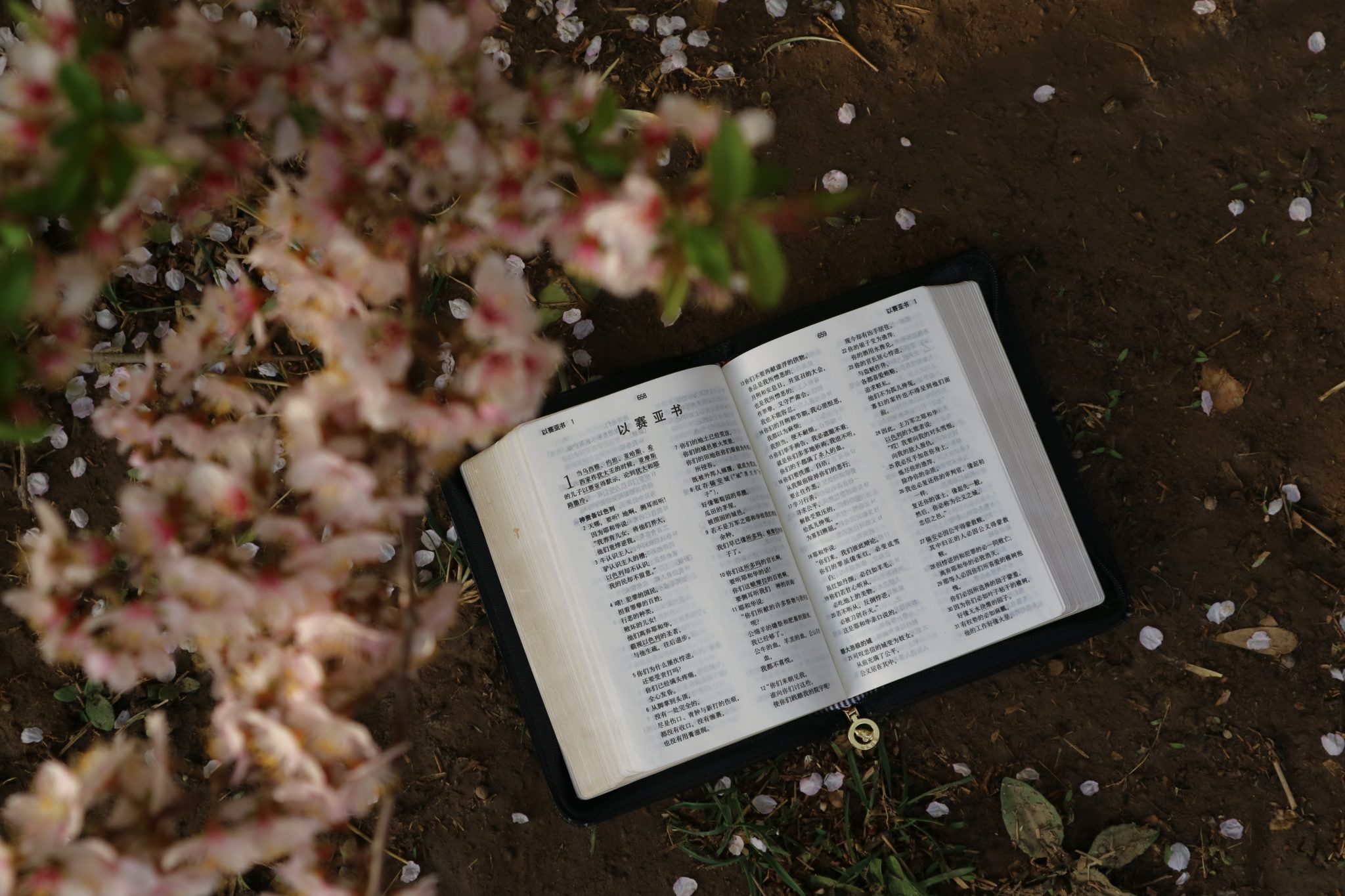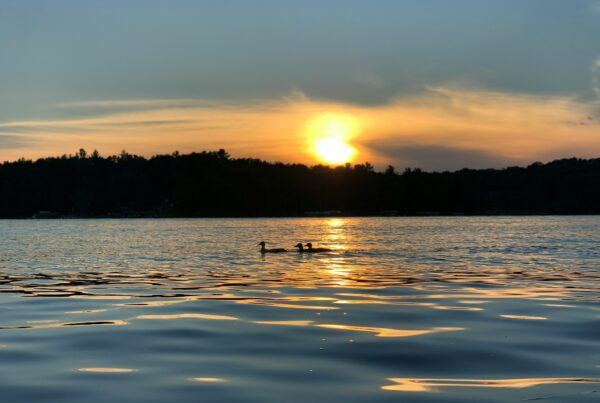O ur responsibility to care for God’s creation is sort of like the ultimate babysitting gig. A babysitter temporarily acts as a child’s primary caregiver, attending to the child’s needs and keeping the child safe. The child does not belong to the babysitter, but the responsibility for that child’s care does for a period of time. Similarly, the earth is not ours, but we have been entrusted with caring for it, protecting what God has made so that it can be enjoyed for generations to come.
Some Christians think we only need to worry about the world’s spiritual health—that so long as we have salvation in Christ, what happens to God’s creation as we await Christ’s return is unimportant. But the Bible indicates that Christ is about redeeming the whole earth, not just our souls.
And doing nothing to help care for the earth also goes against some babysitting basics. When a child tries to play with matches or run into the middle of traffic, a good babysitter doesn’t sit back and wait for the parents to come back and intervene. Rather, the babysitter puts the matches safely out of reach. The caretaker guides the child away from the speeding cars of rush hour. She takes immediate action to keep the child, placed in her care, safe.
We as Christians cannot sit back and do nothing while God’s creation is being harmed on our watch. Creation is for God’s glory, and humans have been given the special responsibility to care for God’s creation. The destruction of creation not only imperils life, including human life on this planet; it is also a sin against God.
Climate change and other environmental threats devastate and wreak havoc on the world God has made. What guidance can the Bible offer us on care for God’s creation in light of these contemporary challenges?
Genesis 1–3: The story of creation and the fall
Theologically, the first three chapters of Genesis tell us a great deal about three pivotal relationships: those between God and creation, God and humanity, and humanity and the rest of creation.
Genesis 1 and Genesis 2 provide two versions of the creation story. While the two accounts differ in their specific details, they come together to paint a shared theological truth. God made humanity to live in shalom with each other, God, and all of creation. Shalom is a Hebrew word for harmony, peace, wholeness, and justice. It describes things as they should be.
Within this ecosystem, from the start, God assigns humans special responsibilities. In Genesis 1, God gives humankind dominion over other living things. In Genesis 2, God puts humankind in the garden of Eden to “till it and keep it.” However, God also specifically instructs them not to eat from one particular tree: the tree of the knowledge of good and evil.
The story of Adam and Eve’s eating the forbidden fruit doesn’t just represent human rejection of God’s way. It represents the fracture of both humanity’s relationship with God and God’s creation. The reverberations of human sin disrupt shalom across all of creation.
“Cursed is the ground because of you,” God said to Adam. “Thorns and thistles it shall bring forth for you” (Genesis 3:17b-18a).
This would be a dire predicament if the story ended there. Fortunately, God doesn’t give up on us so easily.
How Jesus restores our relationship with God’s creation
In the New Testament, we discover that Christ not only restores and reconciles our relationship to God; Christ also restores our right relationship to the creation of which we are a part.
In the first chapter of Colossians, for example, we read: “through [Christ] God was pleased to reconcile to himself all things, whether on earth or in heaven, by making peace through the blood of his cross” (Colossians 1:20).
And in the letter to the Romans, Paul writes: “For the creation waits with eager longing for the revealing of the children of God; for the creation was subjected to futility … in hope that the creation itself will be set free from its bondage to decay and will obtain the freedom of the glory of the children of God” (Romans 8:19-21).
Our new life in Christ consists of a restored relationship to both God and creation. As people in the body of Christ, we—and all of creation—move toward the fulfillment and wholeness intended for everything through Christ.
We are not delivered from this world, nor are we simply assured of a greater spiritual reality lying beyond this world. Rather, the bodily resurrection of Christ means that the power of sin and death is defeated. The new creation is breaking forth in this world.
Our new life in Christ has its roots and bears its first fruits here, within our own broken and mortal lives. Likewise, newness in Christ for all the rest of creation begins here, within its mortal brokenness.
Related: How Facing Death with Christian Hope Can Bring Us New Life in Christ
Daily we experience brokenness within the created order.
Nature erupts with hurricanes, floods, droughts, and earthquakes in protest of climate change we’ve helped cause. We cannot drink safely from streams and rivers. The air around us has been fouled by the fumes from a nearby industrial plant, by invisible wastes of our own automobiles, by the stench of a giant feed-lot containment for cattle outside town. Creatures of the deep choke on plastic we’ve thrown away without care.
As a people who are being made new, we have a particular interest in the renewing of God’s creation. From the start, God has called upon humans to serve as stewards of creation—to till the soil and oversee the rich garden of creatures around us. Now, many of these precious creatures are endangered, and we humans are to blame. What might we do to restore God’s creation to its true beauty, to bring it closer to shalom?
Why care for God’s creation must be a global effort
Our broken relationship with creation has a far-reaching impact, touching all that God has made. So our care for God’s creation cannot be limited to just one sliver of it. The church’s care for the earth needs to be global.
We ought to be concerned about the deterioration of land, air, and water within our own immediate communities. We ought to be concerned about the impact of climate change on the places where we live. But our task of caring for God’s creation calls us far beyond these boundaries. The vision of shalom is one in which all people share the resources of creation harmoniously.
The life-sustaining resources of creation are in peril throughout the globe. The massive consumption of our own affluent societies is severely straining the resources of the earth. And the natural world is not Las Vegas. What happens in one region doesn’t stay there.
The ways we’re consuming energy and resources are changing the climate of the entire planet more rapidly than ever, already causing devastation in some regions. There are also finite limits to many resources, and if one group takes more than they need, it means another group gets less. Likewise, when one area of the earth ignores the threat of climate change, the rest of the planet pays a price, too. And the people who are already the most vulnerable economically are likely to be hit hardest. A pattern of reckless and unjust resource consumption lies at the heart of our environmental peril.
We can begin caring for the earth, then, only from a posture of repentance. The restoration of God’s shalom for all of creation requires changes in our attitudes, in our values, and in our lives. If Christ’s work of redemption extends not only to us, but to all creation, then it’s time that we demonstrate redeemed relationships to the earth’s resources and a commitment that they be shared justly with all people.
Care for God’s creation
For ideas and resources on creation care, explore this toolkit that includes teaching tools for kids; ways to mobilize your church for climate justice; prayers, liturgies, and songs you can use for worship; and more!
This article draws on and adapts material from “Care for the Earth: Theology and Practice,” a 1982 paper by the RCA Commission on Christian Action. Read the full paper here.
Grace Ruiter co-founded Faithward and oversaw its growth from a small blog to a ministry that reaches 100,000-200,000+ people each month. She has been asking too many questions ever since she started talking, and she has no plans of stopping now. Although her curiosity has challenged her faith at times, it's also how her relationship with God has grown to where it is today. You can get in touch with Grace at graceruiterwrites@gmail.com.
RCA Commission on Christian Action
The Reformed Church in America’s Commission on Christian Action informs and advises the church concerning current social issues and the spiritual and Christian principles by which critical evaluation may be exercised and proper action taken. Learn more about the commission’s priorities and work.




